Book Launch Explores Adaptive Peacebuilding—A New Approach to Sustaining Peace
2023.07.11
Preventing and resolving violent conflicts has become increasingly challenging due to a range of factors, including climate change, natural disasters, and infectious diseases. When several of these factors occur at the same time the risk is compounded, and in some cases, this has resulted in an increase in armed violence, and the number of refugees and internally displaced persons.
The JICA Ogata Sadako Research Institute for Peace and Development (JICA Ogata Research Institute) has undertaken a research project entitled, “Contextualizing International Cooperation for Sustaining Peace: Adaptive Peacebuilding Pathways,” to explore contemporary forms of international cooperation for conflict resolution and peacebuilding. To share the research findings published in the book “Adaptive Peacebuilding: A New Approach to Sustaining Peace in the 21st Century,” the Institute hosted a seminar on May 26, 2023.
The opening remarks by Mine Yoichi, executive director of the JICA Ogata Research Institute, provided insight into the complexity of contemporary global peace crises, and the evolution of the traditional forms of violent conflicts. He elaborated on the challenges facing international bodies when tackling violent conflicts which have recently been occurring more frequently in states rather than between nations. Such occurrences have contributed to the complexity of conflicts and the increasing difficulty of assisting the people who suffer within the boundaries of nation-states. He set the scene by pointing out that the inherent complexity of modern conflicts has brought forward the necessity to adopt adaptive peacebuilding approaches.
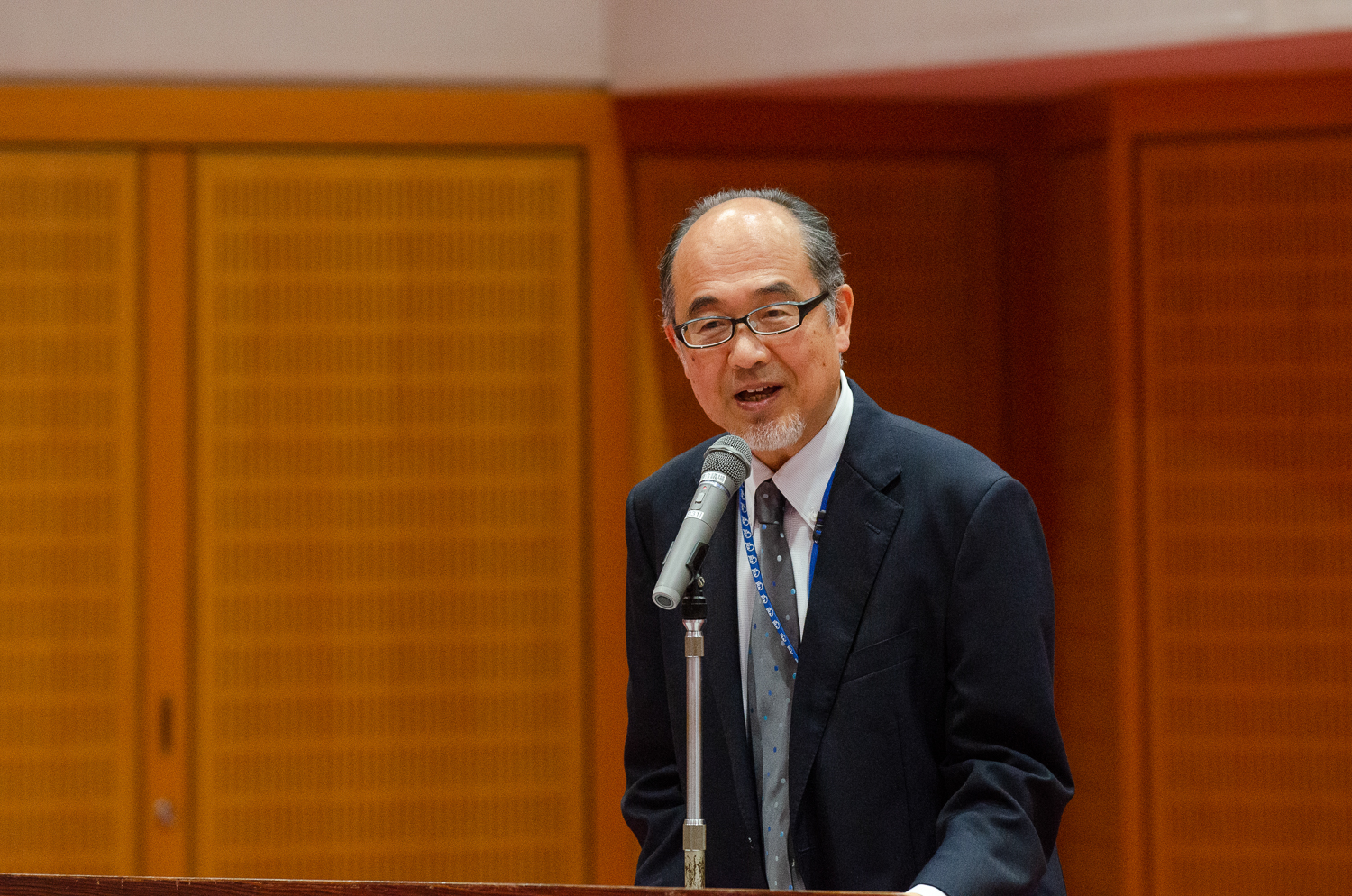
Mine Yoichi, executive director of the JICA Ogata Research Institute
Following Mine’s remarks, Cedric de Coning, a research professor at the Norwegian Institute of International Affairs (NUPI), shared the findings of the book project. The book contains five case studies and two country approaches across Africa, Asia, the Middle East and Latin America, and explores if peacebuilding approaches that are adaptive to context are more effective in preventing and resolving conflict than approaches that are based on pre-determined assumptions. According to him, the research found that 1) top-down, determined-design and technocratic approaches were less effective than context-specific, locally-driven, and adaptive approaches to resolving conflicts and sustaining peace; 2) the most effective context-specific approaches were those that were rooted in the history, culture and reality experienced by the affected people; 3) the adaptive approaches identified in the case studies were more effective when they relied on the active engagement and participation of the affected communities; and 4) when people affected by conflict felt that they have been involved in shaping the peace, they also felt a sense of ownership and responsibility to sustain the institutions and processes necessary to sustain the peace.
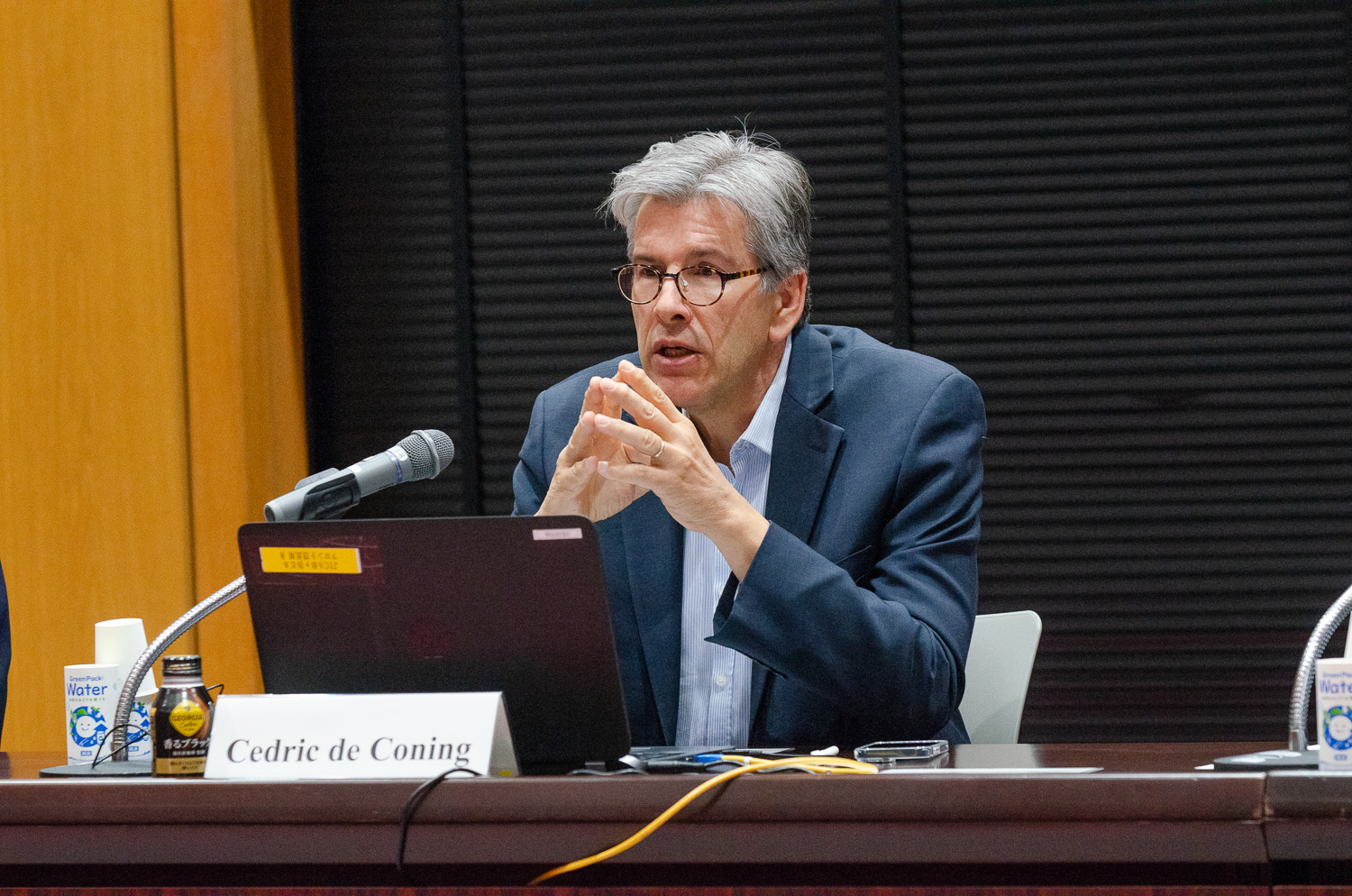
Cedric de Coning, research professor at the Norwegian Institute of International Affairs
Rui Saraiva, who is a lecturer at Miyazaki International University and a former researcher at the JICA Ogata Research Institute, presented the findings of the book chapter related to Mozambique. Saraiva presented an overview of Mozambique's recent history, which was regarded as a successful peacebuilding model until a small-scale armed conflict between the Mozambican National Resistance (RENAMO) and the Mozambican government reoccurred in 2012 and continued until August 2019. The recurrent conflict exposed the fragility of past peacebuilding interventions and highlighted the need to adopt more flexible, adaptive, and effective peacebuilding initiatives based on process facilitation, institutional learning, and context-specific feedback. Saraiva argued that adaptive peacebuilding approaches hold the potential to become more effective than top-down and determined-design peacebuilding approaches, as they stimulate the self-organization and resilience of local communities affected by complex armed conflicts.
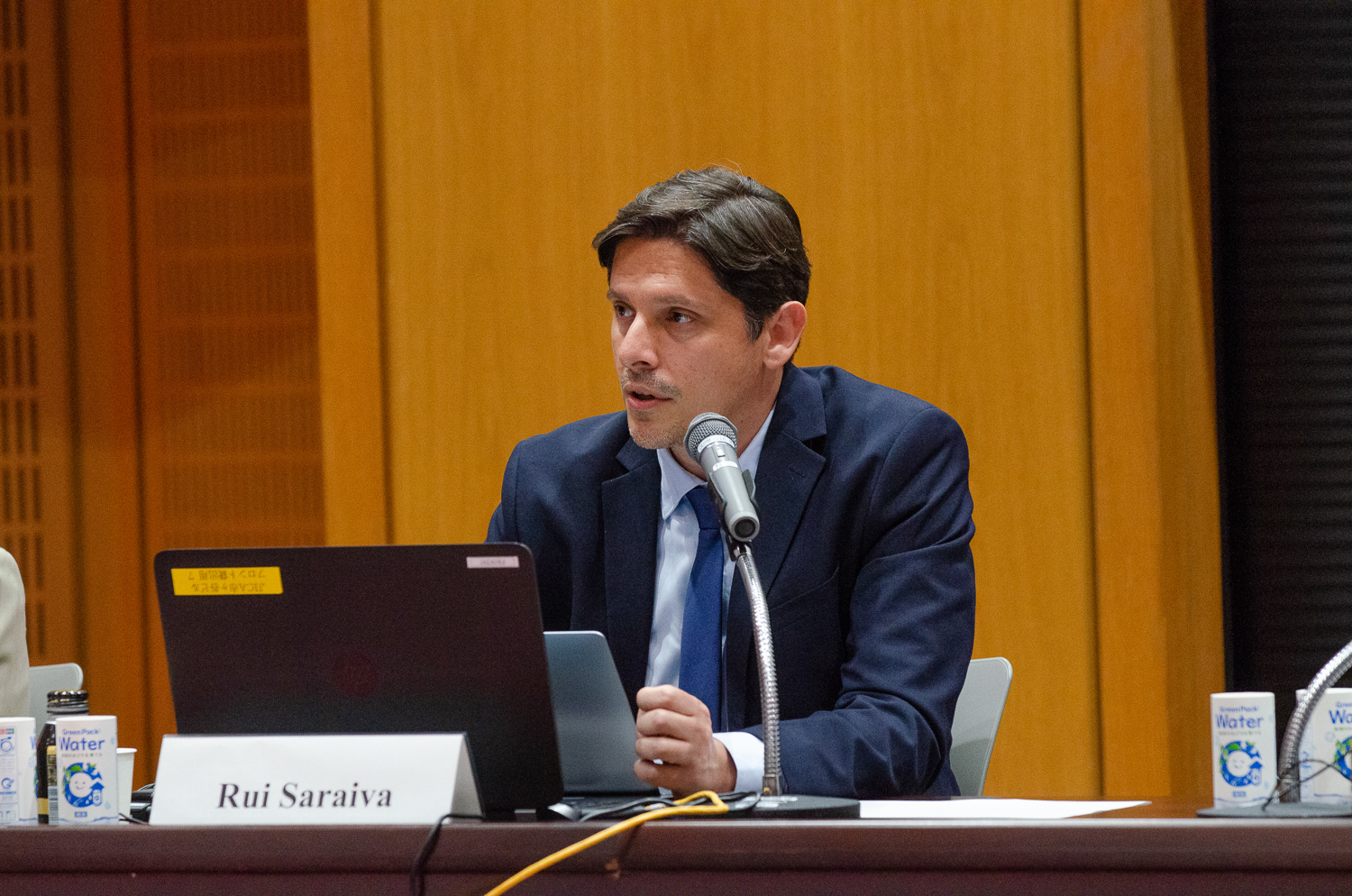
Rui Saraiva, a lecturer at Miyazaki International University
Muto Ako, a specially appointed research fellow at the JICA Ogata Research Institute, discussed the challenges and effects of externally driven and locally driven peacebuilding approaches in the Syrian conflict. Muto’s output is a combination of theoretical research and analysis of the implementation process of peacebuilding intervention in the Syrian case. Muto concluded that externally driven peacebuilding approaches have not resulted in a comprehensive peace agreement between the parties in Syria. Nonetheless, adaptive peacebuilding approaches that respect the ownership of local people and promote their agenda, such as the Civil Society Support Room (CSSR) and the National Agenda for the Future of Syria (NAFS) initiatives, show potential in promoting dialogue, building networks, and trust among participants. Concerted efforts by external actors are needed to promote adaptive approaches and engage diverse local actors to reduce violence and improve peace conditions in the complex Syrian conflict.
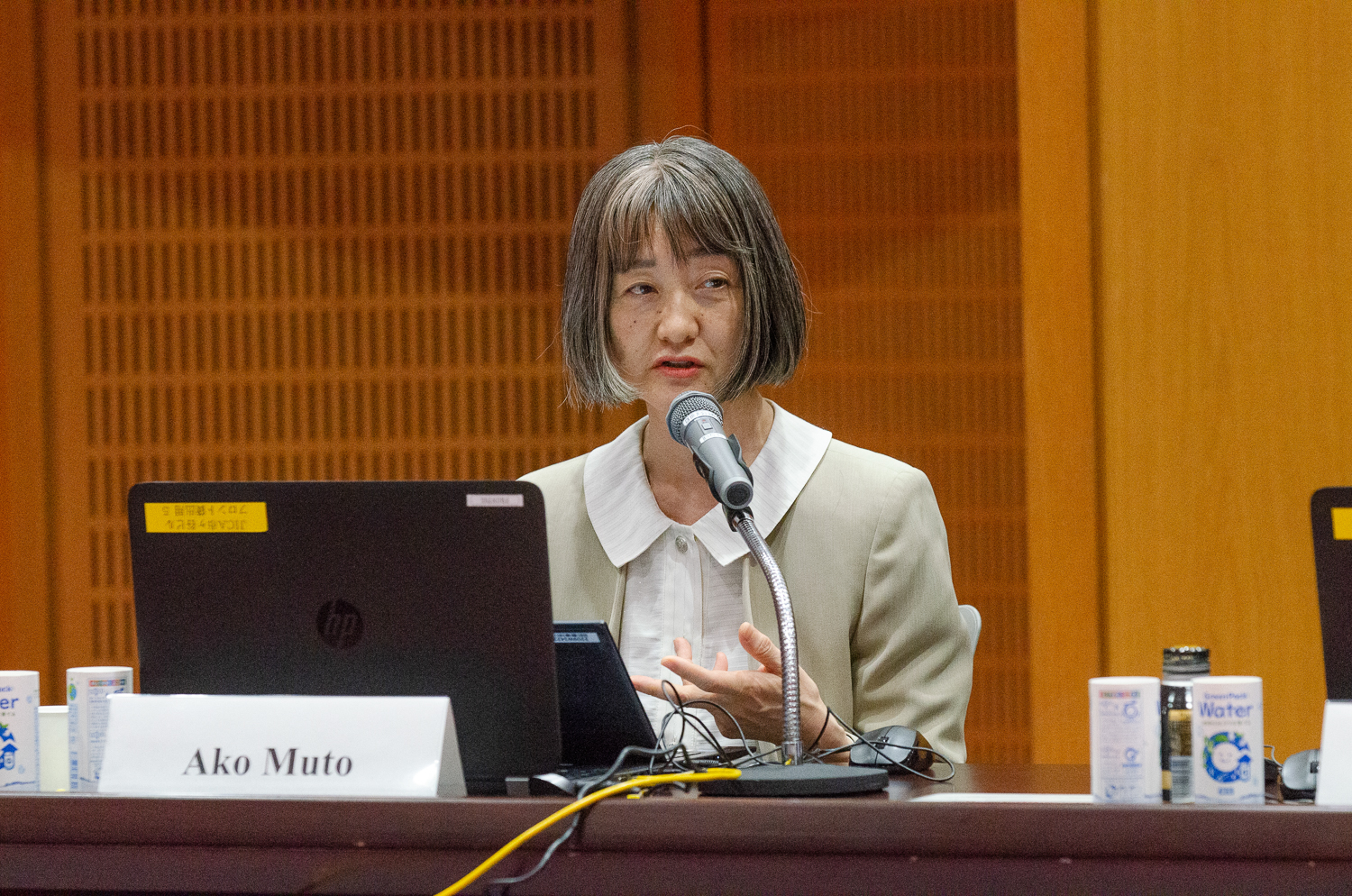
Muto Ako, a specially appointed research fellow at JICA Ogata Research Institute
The seminar was concluded by the panelists, Kubota Yuichi, associate professor at Nihon University, and Murotani Ryutaro, senior director of the Office of Peacebuilding, Governance and Peacebuilding Department at JICA, by addressing the potential challenges that the adaptive peacebuilding process might encounter, such as costs and time needed for the process, and skills and competencies required for local peacebuilders. Murotani also pointed out the similarity between adaptive peacebuilding and JICA's global agenda for peacebuilding which aims at building resilient states and societies that can prevent violent conflicts through human security principles. Among several insightful questions from the audience and online, a question on the effect of global geopolitics on the dynamics of adaptive peacebuilding, Muto agreed that in the Syrian conflict, the global context had an enormous effect on the local context, which is why externally driven peacebuilding approaches have made little progress. A lively discussion between the presenters and the audience ensued.
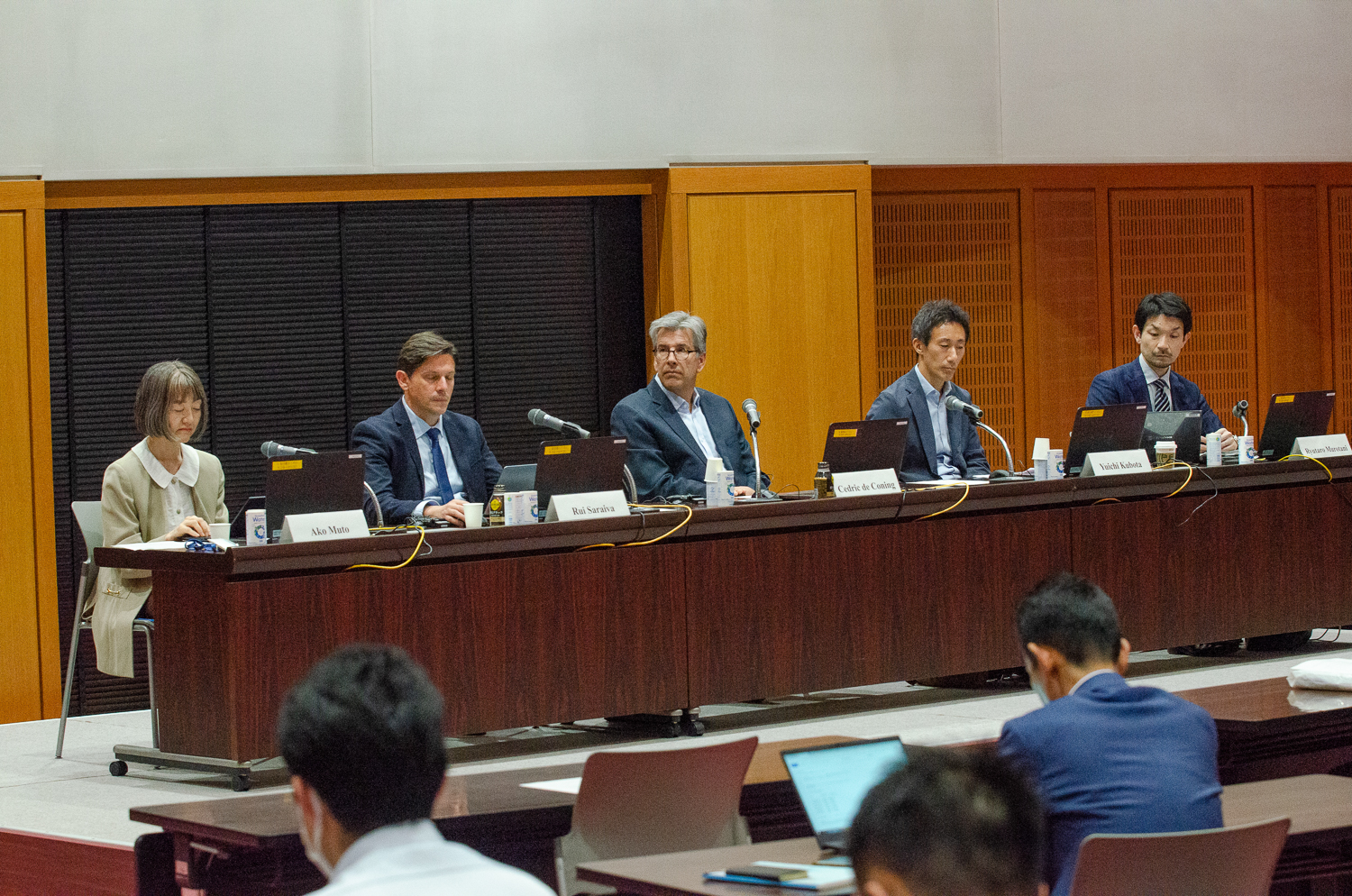
Experts discuss the potential of adaptive approaches as viable methodologies for peacebuilding
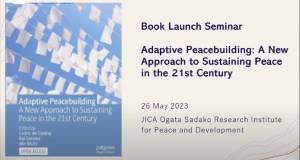

事業事前評価表(地球規模課題対応国際科学技術協力(SATREPS)).国際協力機構 地球環境部 . 防災第一チーム. 1.案件名.国 名: フィリピン共和国.

事業事前評価表(地球規模課題対応国際科学技術協力(SATREPS)).国際協力機構 地球環境部 . 防災第一チーム. 1.案件名.国 名: フィリピン共和国.

事業事前評価表(地球規模課題対応国際科学技術協力(SATREPS)).国際協力機構 地球環境部 . 防災第一チーム. 1.案件名.国 名: フィリピン共和国.

事業事前評価表(地球規模課題対応国際科学技術協力(SATREPS)).国際協力機構 地球環境部 . 防災第一チーム. 1.案件名.国 名: フィリピン共和国.

事業事前評価表(地球規模課題対応国際科学技術協力(SATREPS)).国際協力機構 地球環境部 . 防災第一チーム. 1.案件名.国 名: フィリピン共和国.